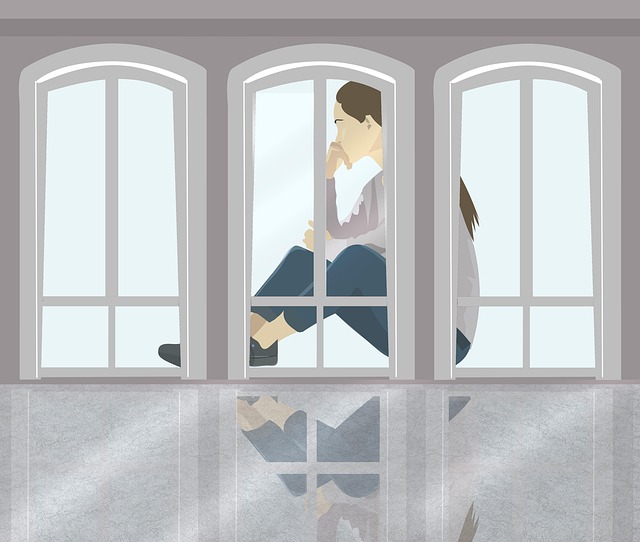Chronic depression is a long-term depressive disorder diagnosed by healthcare professionals, including depression therapists. These specialists employ evidence-based therapies like CBT and IPT, alongside mindfulness practices, to address negative thought patterns and relationship issues. Building a strong therapeutic alliance with the right depression therapist is key; they guide individuals through tailored coping strategies, regular counseling sessions, and self-care routines for holistic treatment and improved mental well-being. Researching local therapists specializing in depression treatment and considering client reviews aids in selecting the best fit for effective recovery.
Depression can be a relentless companion, with chronic forms persisting for years. If you’re navigating this challenge, know that depression therapists play a pivotal role in your recovery journey. This article is a comprehensive guide to understanding and managing chronic depression. We explore symptoms, diagnosis, and the diverse therapeutic approaches offered by depression therapists. Learn about building trust with your counselor, coping strategies, integrating counseling into daily life, and resources to find the right support for you.
Understanding Chronic Depression: Symptoms and Diagnosis

Chronic depression, also known as persistent depressive disorder, is a long-lasting and severe form of depression that can significantly impact an individual’s daily life and overall well-being. Unlike major depressive episodes that come and go, chronic depression persists for at least two years, often much longer. This continuous state of low mood, loss of interest in activities once enjoyed, and decreased energy can make it challenging for individuals to function and maintain a sense of normalcy.
The diagnosis of chronic depression involves a comprehensive evaluation by qualified healthcare professionals, including psychiatrists or licensed depression therapists. They assess symptoms such as persistent sadness, feelings of hopelessness, changes in appetite and sleep patterns, fatigue, difficulty concentrating, and recurrent thoughts of death or suicide. Through detailed interviews, physical examinations, and sometimes diagnostic tests, these professionals can accurately identify chronic depression and rule out other potential causes, ensuring individuals receive the appropriate treatment from their depression therapists.
The Role of Depression Therapists in Treatment

Depression therapists play a pivotal role in helping individuals navigate and overcome chronic depression. Through various therapeutic techniques, these professionals guide patients toward understanding and managing their symptoms. They employ evidence-based approaches like cognitive behavioral therapy (CBT), which focuses on identifying and changing negative thought patterns and behaviors contributing to depression. Depression therapists also create safe spaces for clients to express their feelings, fostering self-awareness and emotional regulation skills.
In addition to individual therapy, depression therapists facilitate group sessions where individuals can share experiences and support one another. This collaborative environment encourages peer learning and builds a sense of community, which is especially beneficial in combating the isolation often associated with chronic depression. They may also coordinate care with other healthcare providers to ensure holistic treatment, addressing both the mental and physical aspects of an individual’s well-being.
Different Types of Therapy for Chronic Depression

When seeking counseling for chronic depression, individuals often explore various therapeutic approaches designed to alleviate symptoms and improve overall well-being. One widely recognized method is cognitive behavioral therapy (CBT), which focuses on identifying and modifying negative thought patterns and behaviors contributing to depression. CBT helps patients challenge distorted beliefs, develop healthier coping strategies, and gain a more positive perspective on life.
Another effective approach is interpersonal therapy (IPT), centered around understanding and improving relationships as a means of enhancing mental health. IPT aims to resolve conflicts, build better communication skills, and foster supportive connections, all of which can significantly reduce symptoms of depression. Additionally, mindfulness-based therapies have gained popularity for their ability to promote present-moment awareness and acceptance, enabling individuals to manage depressive episodes more effectively. These diverse therapeutic options empower people to take charge of their mental health journey by providing tools tailored to their unique needs and circumstances.
Building a Therapeutic Alliance with Your Counselor

Building a strong therapeutic alliance is crucial in the journey towards managing chronic depression, and it begins with finding the right depression therapist for you. This partnership is about trust, openness, and mutual respect. When you connect with your counselor, they become your guide, someone who listens without judgment and offers support tailored to your unique needs. A good alliance ensures that you feel comfortable sharing your thoughts and emotions, which is essential for effective counseling sessions.
Your therapist plays a vital role in empowering you to navigate the challenges of depression. They help you explore feelings, gain insights, and develop coping strategies. Through consistent communication, they can adapt their approach, ensuring it resonates with your personal experiences. This collaborative process fosters a sense of security, encouraging you to actively participate in your healing journey, making therapy a safe space for transformation and growth.
Coping Strategies Taught by Depression Therapists

Depression therapists equip individuals with a range of coping strategies to manage chronic depression effectively. These techniques are tailored to address specific challenges and symptoms, offering personalized support for each client’s unique journey. One common approach involves cognitive-behavioral therapy (CBT), which helps individuals identify and challenge negative thought patterns and behaviors contributing to their depression. By learning to replace these with healthier alternatives, clients can improve their mood and overall well-being.
Additionally, therapists may incorporate mindfulness practices, such as meditation and breathing exercises, to enhance present-moment awareness and reduce rumination. These strategies encourage individuals to focus on the here and now, cultivating a sense of calm and perspective. Other techniques might include setting achievable goals, engaging in regular physical activity, and developing effective communication skills—all designed to foster resilience and promote positive coping mechanisms.
Integrating Counseling into Daily Life for Long-Term Support

Integrating counseling into daily life offers a long-term support system for managing chronic depression. The consistent interaction with depression therapists fosters a sense of stability and provides a safe space to explore thoughts and emotions. Through regular sessions, individuals learn coping strategies tailored to their unique experiences, enabling them to navigate challenges more effectively. This continuous care enhances resilience and promotes emotional well-being.
Depression therapists guide patients in between sessions by teaching mindfulness practices, encouraging self-care routines, and offering practical tools for stress management. By actively participating in these activities, individuals can extend the benefits of counseling beyond the therapy room, fostering a more balanced and fulfilling daily life. This holistic approach ensures that the support received during counseling translates into lasting positive changes.
Resources and Next Steps: Finding the Right Depression Therapist

When considering counseling for chronic depression, finding the right depression therapists is a crucial step in your journey to healing. Start by researching local mental health professionals who specialize in depression treatment. Many therapists have websites detailing their approaches and areas of expertise, helping you choose one aligned with your needs. Don’t hesitate to read client reviews or ask for referrals from trusted sources like healthcare providers or support groups.
Once you’ve identified potential depression therapists, schedule initial consultations to gauge compatibility. This meeting allows both of you to discuss goals, expectations, and treatment methods. Remember, the therapeutic relationship is a partnership, so it’s essential to feel comfortable and supported. If a particular therapist doesn’t resonate, consider another; finding the right fit can significantly impact your recovery experience.
